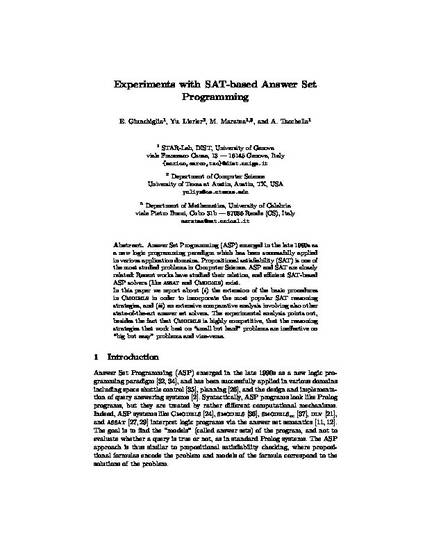
Answer Set Programming (ASP) emerged in the late 1990s as a new logic programming paradigm which has been successfully applied in various application domains. Propositional satisfiability (SAT) is one of the most studied problems in Computer Science. ASP and SAT are closely related: Recent works have studied their relation, and efficient SAT-based ASP solvers (like assat and Cmodels) exist. In this paper we report about (i) the extension of the basic procedures in Cmodels in order to incorporate the most popular SAT reasoning strategies, and (ii) an extensive comparative analysis involving also other state-of-the-art answer set solvers. The experimental analysis points out, besides the fact that Cmodels is highly competitive, that the reasoning strategies that work best on “small but hard” problems are ineffective on “big but easy” problems and vice-versa.
Available at: http://works.bepress.com/yuliya_lierler/29/

1st Workshop on Search and Logic: Answer Set Programming and SAT (LaSh06)